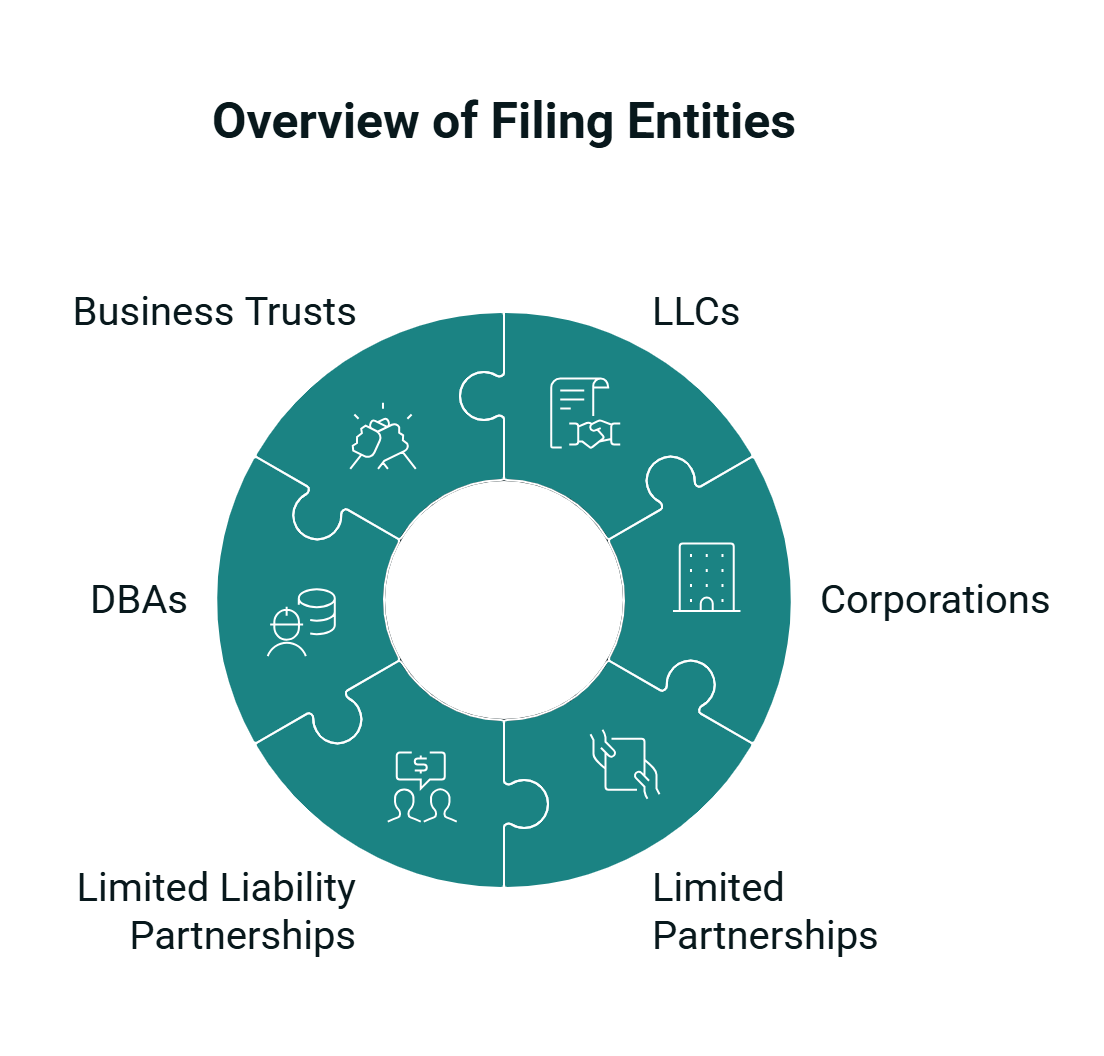Utah requires businesses to maintain compliance through annual reporting to keep entities in good standing with the state's Division of Corporations & Commercial Code. These mandatory filings serve as official updates on your business's current information and confirm continued operations across all entity types.
As a business owner in Utah, understanding the complete annual report process is crucial for maintaining compliance and avoiding penalties that can affect your ability to operate legally in the state.
Utah requires annual reports from all registered business entities on file with the Division, regardless of whether they're domestic or foreign entities. This requirement applies to both domestic entities and those completing Utah foreign registration to operate in the state.
Entities required to file include:
Registered agents or other authorized representatives can file annual reports on behalf of entities, making compliance management easier for businesses. Unlike some states, Utah doesn't require a certificate of good standing to complete your annual report filing.

The Utah Division of Corporations and Commercial Code website offers the fastest processing. Follow these steps to file online:
Alternatively, you can file by mail by printing the required forms from the state’s site and including a check payable to “State of Utah.” However, processing may take 7-10 business days.
Utah annual reports follow an anniversary-based system. Your renewal period opens 60 days before your anniversary date (the date your entity was originally registered with the Division), and the renewal is due on or before that anniversary date.
For LLCs, the statute requires the report to be delivered to the Division during the month that contains the anniversary date.
In practice, this means filing by the last day of your anniversary month. For example, if your business was formed on September 15, your annual report is due by September 30 each year.
You can file your report up to 60 days before your due date. If you file after the due date, a $10 late renewal fee applies. Utah doesn't grant extensions for annual report filings.
Utah's current fee structure includes a $5 surcharge for online filings through the state's single sign-on portal.
When filing your Utah annual report, you'll need to provide current business information to keep state records accurate. This includes your current principal address, registered agent name and address, and specific leadership details depending on your entity type.
Information required for all entities:
Additional requirements by entity type:
When updating your registered agent information, many businesses use registered agent services for ongoing compliance management.
For mail filings, original signatures are required using black or blue ink. Online filings use electronic signature verification through the UtahID system.
Failing to file on time triggers a $10 late fee after the 30-day grace period expires. Additionally, entities that remain unfiled for 60 days after the due date are marked as "expired", which can lead to administrative dissolution proceedings.
Progression of consequences:
Beyond state penalties, expired status creates practical business problems. Banks and lenders often require good standing verification for loans and credit facilities. The Utah Tax Commission may also flag non-compliant entities, potentially complicating tax filings and business operations.
Is the information in my Utah annual report available to the public?
Yes, all information submitted in your Utah annual report—including updates to your business purpose, registered agent, principal address, and leadership details—becomes part of the public record and is accessible through the Utah Division of Corporations’ online business search.
Can I update or amend my business information when filing the annual report?
Yes, you can update certain information about your business during the annual report filing process. This includes changes to your business purpose, registered agent or their address, principal address, and adding or removing individuals such as directors or officers.
What happens if my business is administratively dissolved for not filing an annual report?
If your business is administratively dissolved for failing to file an annual report, you must go through a reinstatement process. This typically involves paying overdue fees, submitting the required documentation, and possibly additional filings to restore your business’s good standing.
Does Utah require an initial report for new businesses?
No, Utah does not require new businesses to file an initial report upon formation. The first required filing is the annual report, which is due by the end of your business’s anniversary month in the year following formation.
Utah's annual report deadlines don't wait for busy schedules or forgotten reminders. When you're juggling multiple entities across different states, manual compliance tracking becomes a costly gamble that puts your business standing at risk.
Discern transforms this administrative headache into background automation. Our platform monitors all your Utah entities, pre-fills reports with current data, and handles submissions automatically.
Book a demo today and see how effortless Utah compliance can be.